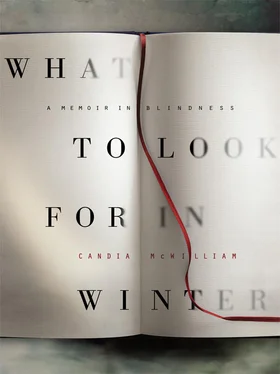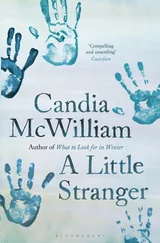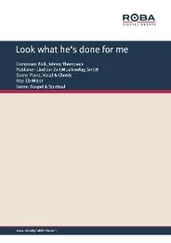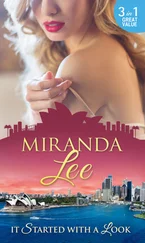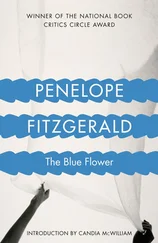It was at Duinroosje, where we lay having a rest, as we had to every afternoon, in the yellow-painted metal-tubing bunks, that Nicola told me that she came from a different, more elevated, social class than I did. She explained this in terms of the size of her parents’ garden and the amount of land lying thereabouts. I looked at the metal rungs of the yellow ladder that led down from my top bunk to hers below. I’d never really seen class in terms of stiff rungs or layers, but of continual change and adaptation, as something rather diverting, like picking up shells on a beach, knowing that each one was different, identifying how so, but not saying which was more or bigger or better, or, indeed, less, smaller or worse.
Soon enough, love distracted from class. We were at the next house on the summer progress through Holland, Springendaal. Set in a pine forest close to the German border, this was a gingerbread playhouse for plutocrats built in delicious brown wood and curtained nattily in red and white. This was the house where I learned to put off going to the lavatory for as long as two weeks. It is a trick that is unprofitable; you might say it backfires. But I was scared to go into the woods and crouch and dig and bury. Who was watching? Only God, but still I imposed this mannerly constipation upon myself, afraid of nothing more than my own body. It was merely a physiological version of what I was up to within more perilous recesses in my mind.
Other matters of hygiene were also mortifying. Nicola and I bathed, each with her own enamel basin of cold water, her flannel and soap, out of doors in the heather every morning in the slanty light among the cobweb-silvered heather. She was a perfect little cherub and I was shape-shifting in ways I would rather not notice myself, never mind have anyone else notice.
The air at Springendaal made up for everything. It was as I imagine the air must be in The Magic Mountain , bracing and curative. Although the land was flat the air was drinkable it was so refreshing; something to do with cleanliness and those inhospitable but sweetly breathing pines above.
The family’s large house outside Enschede was named Stokhorst, and it was here that the matriarch, Oma Jannink, lived, to whom, each summer, we paid our respects. It was a high cube of a house with yellow shutters and deep rooms, the kitchen painted that furious strong Dutch blue to keep off flies. The toy cupboard at Stokhorst was marvellous, stuffed with Edwardian dolls, complex tin merry-go-rounds and wonderfully articulated puppets. When we stayed there, the maid, uniformed, brought dry biscuits called beschuiten with strawberries squashed into them and fresh milk when she came to wake us up. Nicola and I generally shared a room.
It was with her cousin Alexander that I fell in love, in no very serious way, but it gave me a repository for my longing to be unaccompanied and to daydream and make up stories. Maybe this longing to be alone is just an attribute of only children, though I’m dead certain Nicola longed to be without me too. No one named Alexander can ever be quite unheroic. I chose Alexander to love because I was really in love with Alexander the Great. The very thought of him at his lessons with Aristotle or astride Bucephalus gave me a thrill.
Nearly all the worst fights that Nicola and I had in our childhood were semantic. She was practical, able, efficient and literal-minded. I was in a place where I could not express myself in language and took refuge in being dreamier and more in-turned than ever.
Nicola knew how to get a rise. She would talk Dutch to herself when we were alone in a room together, or (and she scored every time with this one) she would start to talk about the complete pointlessness of learning Latin and Greek. I still rise to this today. I feel my glands swell, my lecturer’s voice settle in my throat, the old arguments conjugate themselves within my enraged brain. Was it for this the Spartans fell? Tell them, passing stranger.
You can see Nicola’s point.
So we riled one another through these summers and became, probably, quite fond, each of each. I remember that I told her when I had the frightening experience of an elderly maid at Stokhorst getting me to put my tongue into first her parrot’s and then her own mouth. The parrot was an African Grey and its tongue the colour of an unopened black tulip. It was quite dry. The maid’s mouth was wet.
The happiest house, which I remember with love and where the atmosphere of devotion was so strong that one almost dared not spoil it by lazily falling into our bad sniping patterns, was named De Eekhof. This was the home of Christine’s Tante Lida and Oom Nico. They had no children, yet the house was arranged as though for children and the disciplines and routines led to mental ease and stimulation in a way that any family might envy. The maid Helli wore a white kerchief and everything about the kitchen and the dining room and where we played seemed clean but not sterile, and, which is irresistible to a child, even to a very tall one, all our equipment was one size smaller. We played, after our morning swim in the pool that was simply a sandy crater at the end of the garden, with a toy grocer’s shop, its name het Winkeltje (the little shop), that had come from the store of toys at Stokhorst. There were enamel weighing scales, little iron weights, jars of dry goods, small wax paper bags, churns, dippers, ladles, and carved wooden vegetables of every kind. Even when we were too old to play with this toy it was irresistible to us and peace would break out between Nicola and me. There were gravelled walks and flopping buddleia covered with tortoiseshell butterflies. At rest-time, we really did rest, like happy children tired out by play in some ideal of family life. Tante Lida and Oom Nico were cultivated, curious and sophisticated. They left their considerable collection of paintings to the Dutch people. I remember walking dripping after a swim past a picture that I know now was by Monet. There was no fuss. No one ticked me off for my wet footprints. Halfway up the stairs on the way to our bedroom was an automaton we were allowed to play with once a day each. You wound it up and then the real, stuffed, fez-wearing monkey under the glass cloche would begin to do magic tricks, lifting a bowl to reveal a different surprise every time.
The last time I went to De Eekhof I was reluctantly adolescing. Oom Nico took me for a walk. He had read my diary, in which I had written that I was so unhappy I wanted to die.
‘It is a waste of time,’ he said, ‘to be unhappy. And at your age it should be impossible. Believe me, I know. One feels important if one is unhappy. But it could all be so much worse, you know.’ He had the great gentleness to mention no other diary, no other unhappy teenage girl, to be found in Holland no time at all ago.
Oom Nico had hairs growing out of the end of his nose, and large, sad eyes. He wore bifocal spectacles that magnified these eyes. He was bald and was driven to the factory by a chauffeur. The factory made fragrant bales of cotton and printed it gaily. Nicola and I were allowed to choose a bolt each for Christine to sew summer frocks for us. We chose, that last summer, after lunch. Helli had made biftek and afterwards she had drained yoghurt in a cheesecloth and served it with strawberries that had got hot in the sun so that they were between fruit and jam. Nicola chose a white cloth punched with lacy flowers. I chose something pink, feminine and rosaceous, as though for curtains or some large expanse. I chose it for the girl I would have been had I been a better girl. My lukewarm but useful, merely theoretical, crush on Nicola’s cousin Alexander transferred its points completely to devotion and gratitude when Oom Nico said, ‘You will be pretty, you know.’
Читать дальше
